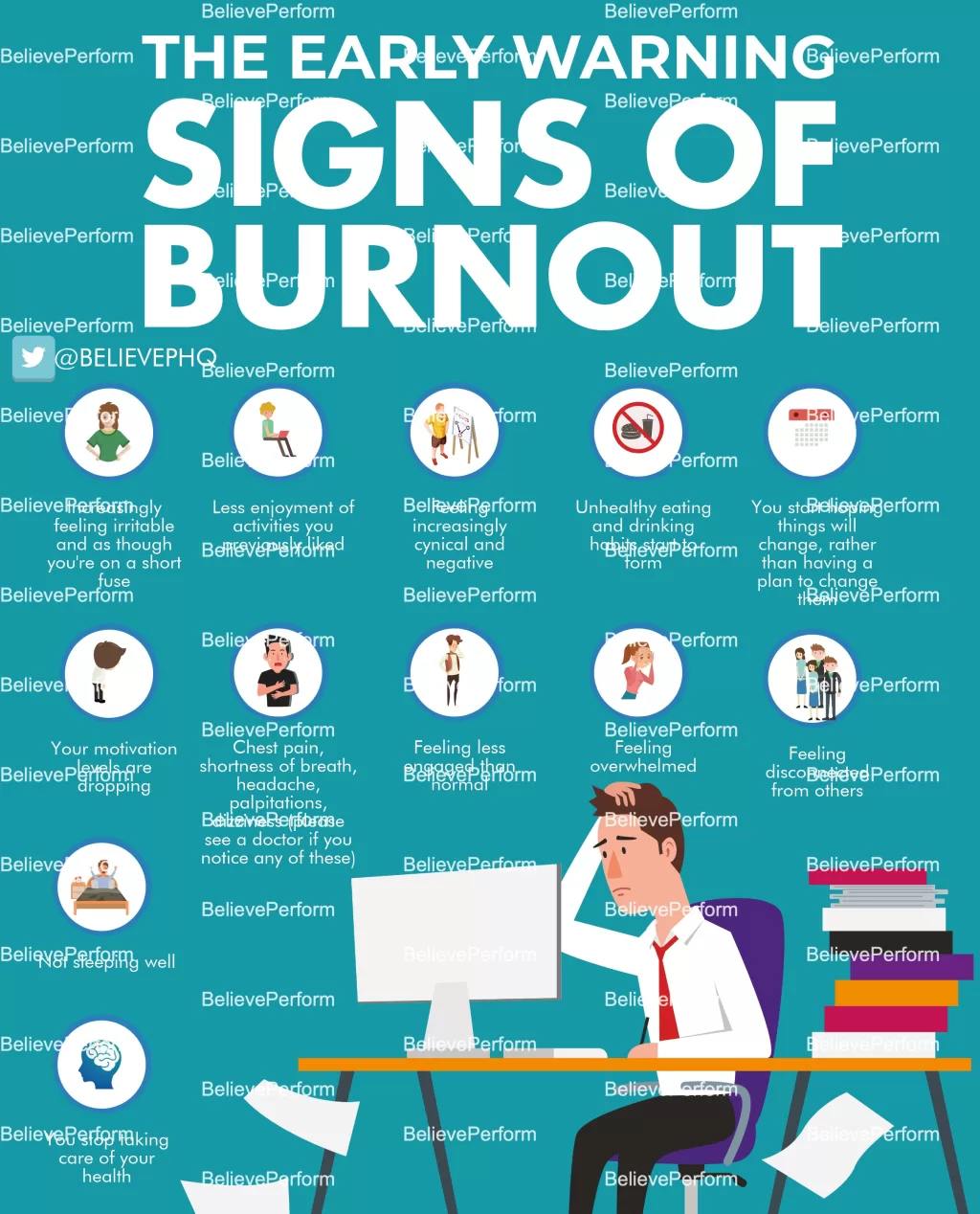Burnout symptoms are becoming increasingly prevalent among workers in the UK, sparking vital conversations around burnout awareness and its implications on workplace health. As reported by recent studies, the signs of burnout—including extreme fatigue, irritability, and social withdrawal—are affecting employee productivity and morale. With cities like Birmingham emerging as hotspots for burnout-related searches, it’s evident that UK worker stress is reaching alarming levels. Addressing these symptoms of burnout is crucial for fostering a healthier work environment and supporting the mental well-being of employees. In this context, understanding how to manage burnout effectively has never been more important for both individuals and employers alike.
In today’s fast-paced work culture, the term “occupational exhaustion” resonates deeply with many, revealing the urgent need for awareness and intervention to combat excessive work-related stress. Symptoms indicating overwhelming fatigue, persistent disengagement, and chronic stress are often symptomatic of a larger crisis affecting today’s workforce. The rising trend of seeking information on how to recognize and address these burnout indicators showcases a growing acknowledgment of mental health as a vital component of workplace productivity. Thus, exploring strategies to prevent and alleviate these exhausting experiences is essential not only for individual workers but also for maintaining a robust organizational culture.
Understanding Burnout Symptoms in the Workplace
Burnout symptoms manifest in various ways, making it crucial for individuals to recognize and address them promptly. Common indicators include severe fatigue, insomnia, irritability, and feelings of detachment from work and colleagues. As highlighted in the recent study, the significance of identifying these symptoms cannot be understated, especially in high-stress environments. Workers in cities like Birmingham are increasingly searching online for relief from such overwhelming feelings, which suggests a growing awareness of the need for mental health support.
Furthermore, burnout symptoms can extend beyond individual experiences, impacting overall workplace productivity and employee retention. Symptoms such as decreased motivation and social withdrawal often lead to reduced teamwork and collaboration, compounding workplace stress. Organizations must prioritize nurturing a supportive environment, as neglecting employee well-being can lead to higher turnover rates, as seen in recent statistics regarding the reasons behind job resignations in the UK.
Burnout Awareness: A Growing Concern in the UK
The rise of burnout awareness among UK workers reflects a critical shift in workplace culture. Recent data signals that cities like Derby are experiencing increased searches related to burnout, illustrating a palpable concern for mental health in those regions. Awareness initiatives are essential in normalizing the discussion around mental health, empowering employees to seek support before burnout escalates into a more severe condition.
With growing awareness, organizations also have an opportunity to address these trends constructively. Implementing wellness programs focused on stress management and work-life balance can significantly contribute to reducing burnout symptoms. The collaboration between employees and employers can foster a healthier work atmosphere, promoting resilience against the damaging effects of high workplace stress.
Current Trends in Burnout Among UK Workers
Recent burnout trends reveal that October is the peak month for searches, highlighting a seasonal pattern amidst workplace stress in the UK. This spike may correlate with fiscal year-end pressures, holiday planning, and the impending winter blues. Notably, as indicated by the dramatic increase in searches, cities like Cardiff are becoming more vocal about these trends, seeking support through various platforms.
Furthermore, generational trends show that younger workers, particularly Millennials, are more likely to cite burnout as a primary reason for job changes. This demographic shift indicates an urgent need for companies to adapt their practices and better support younger professionals in achieving a sustainable work-life balance. Addressing these trends proactively can empower organizations to attract and retain talent while fostering a positive work environment.
Key Indicators of Burnout and Stress Levels in the UK
Recognizing the key indicators of burnout is essential for both individuals and organizational leaders. Symptoms such as persistent exhaustion, cynicism towards one’s job, and reduced professional efficacy are critical warning signs that should be taken seriously. The data suggests that cities like Birmingham, which currently leads in ‘burnout symptom’ searches, might be grappling with higher stress levels among residents. This insight emphasizes the need for intervention strategies tailored to the local workforce.
Moreover, with burnout now recognized as a leading cause of employee turnover, addressing these indicators through employee training and awareness campaigns can foster a more resilient workforce. Leaders in companies across the UK must prioritize promoting open discussions about burnout and ensuring their workplace policies help mitigate these concerning trends.
Cities Most Affected by Burnout Searches
The ongoing research into burnout-related searches across UK cities reveals startling insights about regional stressors. Birmingham emerges as the city most concerned with burnout symptoms, highlighting a need for immediate targeted support. Coupled with other cities like Bristol and Newcastle showing significant search volumes for burnout, the data shows a pervasive worry among UK workers, suggesting that stress is not confined to just high-profile industries.
Notably, the sharp increase in research interest can also be interpreted as a positive shift towards better mental health awareness. Other cities, such as Derby, have seen a staggering 100% increase in burnout-related searches, indicating a growing recognition of the term and its implications. Addressing these concerns through effective community-wide initiatives can help reshape how organizations tackle employee mental health.
The Impact of Burnout Trends on Employee Retention
The current spike in burnout trends undoubtedly impacts employee retention rates in the UK. As noted, burnout has now become the fourth most common reason employees leave their jobs, behind salary dissatisfaction and lack of progression. This statistic serves as a wake-up call for organizations, urging them to assess their workplace cultures and practices to mitigate burnout effectively.
Retention strategies can involve regular check-ins with employees, providing mental health resources, and fostering an open dialogue about workload management. By taking proactive measures, organizations can not only reduce turnover rates but also create a more engaging environment where employees feel valued and understood.
Strategies to Manage Burnout Effectively
Effectively managing burnout requires a holistic approach that addresses personal and organizational factors. Employees are encouraged to recognize the signs of burnout early and to set clear boundaries to maintain a healthy work-life balance. Implementing strategies such as regular breaks, time off, and practicing mindfulness can mitigate the effects of daily stressors and reduce the risk of burnout symptoms.
Employers also play a crucial role in this landscape. By fostering a culture of support and understanding, organizations can contribute significantly to preventing burnout. Providing training on burnout recognition and management for both employees and managers can further empower individuals to seek help proactively and discuss their well-being openly.
The Role of Support Systems in Preventing Burnout
Support systems are becoming increasingly vital in the fight against burnout. Whether through formal workplace programs or informal peer networks, having access to support can make a significant difference in employees’ well-being. Organizations that cultivate such environments demonstrate a commitment to their employees’ mental health, reinforcing that seeking help is not a sign of weakness but a crucial management strategy.
Additionally, the stigma around mental health discussions must be challenged to promote an open culture where workers can speak freely about their struggles. Resources such as employee assistance programs (EAPs), on-site counseling, or training leaders to act as mental health allies can enhance support systems and enable employees to tackle burnout effectively.
Evolving Perspectives on Work and Mental Health
As burnout awareness grows, the conversation around work and mental health is evolving. Workers increasingly prioritize companies that take a proactive stance towards mental well-being, leading businesses to reexamine their approaches and policies. The emerging trend indicates that maintaining a healthy workplace is as critical as financial success, as happier employees tend to contribute more positively to organizational growth.
Moreover, the importance of mental health days and flexible working conditions is on the rise, reflecting a shift towards valuing holistic employee experiences. Companies that embrace these trends are more likely to attract talent eager for a supportive work environment, furthering the cycle of mental health awareness and workplace improvements.
Looking Ahead: Future of Burnout Management in the Workplace
Looking ahead, the future of burnout management is likely to incorporate more personalized approaches tailored to individual needs. With the rise of remote work and flexible schedules, employees have more options to manage stress, emphasizing a unique opportunity for organizations to reassess how they address employee well-being. Creating a hybrid work model that prioritizes mental health can echo positively throughout all levels of an organization.
Moreover, as data continues to unveil trends regarding burnout, leaders will need to adapt swiftly to emerging patterns and employee needs. By leveraging technology and analytics to monitor employee sentiment and engagement, organizations can develop proactive initiatives addressing burnout before it becomes detrimental to individual and organizational health.
Frequently Asked Questions
What are the common symptoms of burnout that UK workers should be aware of?
The symptoms of burnout include extreme fatigue, sleep disturbances, irritability, feelings of detachment, social withdrawal, and reduced productivity. UK workers experiencing these symptoms should seek help and consider exploring ways to manage burnout effectively.
How can burnout awareness help in identifying burnout symptoms early?
Increasing burnout awareness enables individuals to recognize burnout symptoms such as emotional exhaustion and chronic stress sooner. By identifying these symptoms early, UK workers can take proactive measures to manage burnout before it leads to more severe consequences.
What burnout trends are currently affecting UK workers?
Recent burnout trends show a significant rise in searches for burnout symptoms, particularly in cities like Birmingham and Derby. This indicates a growing concern among UK workers regarding workplace stress and the negative impact it has on mental health.
How does managing burnout effectively relate to improving workplace productivity?
Managing burnout can lead to improved workplace productivity. When UK workers address burnout symptoms such as fatigue and lack of motivation, they can enhance their engagement and efficiency, ultimately benefiting both employees and employers.
What strategies can workers use to manage burnout symptoms?
To manage burnout symptoms effectively, workers should recognize signs of burnout, set boundaries to maintain a work-life balance, prioritize self-care through activities like exercise, seek support from colleagues or professionals, and consider a career change if necessary.
Why is it important for employers to address burnout symptoms among UK workers?
Addressing burnout symptoms is crucial for employers as it reduces turnover rates, enhances employee morale, and fosters a healthier work environment. With burnout becoming a leading cause of job dissatisfaction, employers should prioritize burnout awareness and prevention.
What role does self-care play in managing burnout among UK workers?
Self-care is vital in managing burnout as it helps alleviate symptoms such as fatigue and stress. Engaging in regular exercise, maintaining a healthy diet, and ensuring adequate sleep can significantly improve one’s ability to cope with burnout in the workplace.
How do burnout symptoms differ among various age groups in the workplace?
Burnout symptoms can vary among different age groups, with Millennials in the UK citing unsustainable workloads as a major cause of burnout. Understanding these trends allows employers to tailor approaches to manage burnout effectively across diverse teams.
What resources are available for UK workers experiencing burnout symptoms?
UK workers can access various resources for burnout symptoms, including mental health hotlines, workplace wellness programs, and online support groups. Additionally, consulting with mental health professionals can provide personalized coping strategies.
Can recognizing burnout symptoms lead to a career change?
Yes, recognizing burnout symptoms can prompt individuals to consider a career change. If stress and exhaustion are prevalent, it may indicate the need for a healthier work environment or a role with better work-life balance.
| CITY | AVG. MONTHLY SEARCHES FOR “BURNOUT SYMPTOMS” |
|---|---|
| Birmingham | 1300 |
| Bristol | 1090 |
| Newcastle | 780 |
| Edinburgh | 1030 |
| Manchester | 1090 |
| Coventry | 650 |
| Liverpool | 880 |
| Hull | 490 |
| Derby | 450 |
| Glasgow | 1060 |
| Bath | 470 |
| Brighton and Hove | 460 |
| Milton Keynes | 440 |
| Cardiff | 550 |
| Southampton | 380 |
Summary
Burnout symptoms are increasingly prevalent in the UK, signaling a concerning trend among workers striving to cope with high levels of stress and exhaustion. Key cities like Birmingham lead in searches for burnout symptoms, pointing to a wider awareness and need for resources to address this critical issue. As burnout becomes a major reason for job turnover, understanding, recognizing, and managing these symptoms will be essential for maintaining workplace health and happiness.
The content provided on this blog (e.g., symptom descriptions, health tips, or general advice) is for informational purposes only and is not a substitute for professional medical advice, diagnosis, or treatment. Always seek the guidance of your physician or other qualified healthcare provider with any questions you may have regarding a medical condition. Never disregard professional medical advice or delay seeking it because of something you have read on this website. If you believe you may have a medical emergency, call your doctor or emergency services immediately. Reliance on any information provided by this blog is solely at your own risk.








